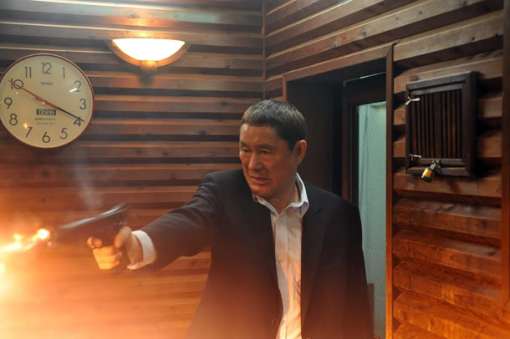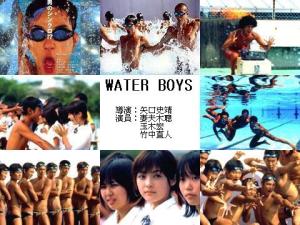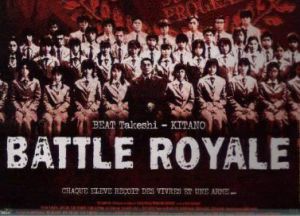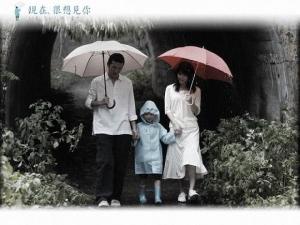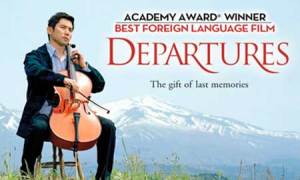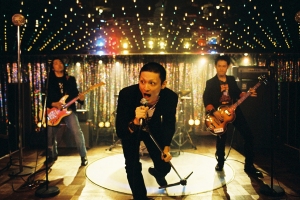Contemporary Japanese Film: Where to Start?
Are you desiring to begin your journey to Japanese cinema enlightenment, but don’t know where to start? Do you study Japanese with Anime, but want to move on to live action? Are you a film lover who wishes to expand your horizons by looking into contemporary Japanese film? I’ll attempt to provide a basic introduction to contemporary Japanese film and recommend 5 movies that I feel are great starters for any film fan wishing to venture into the realm of contemporary Japanese cinema.
I’m sure most people have heard of classic Japanese directors such as Kurosawa and Ozu. Many film makers and film fans watch and study their works to find inspiration and insight into how great films are made. Today, aside from Kitano Takeshi, most Japanese directors aren’t very well-known outside (or even inside) Japan. Japanese films are usually very low budget compared to Hollywood films, so they often appear boring or dull to Western viewers. Japan does enjoy some success on the film festival circuit, with art-house film makers such as Kitano Takeshi, Kurosawa Kiyoshi, Koreeda Hirokazu, and Sion Sono, just to name a few. These directors are in sharp contrast to the mainstream Japanese movie system. Currently, Japan’s top box office hits are either TV drama adaptations, TV company produced non-artistic fluff, or Anime. Some of them may be considered “good,” but most are worthless to the seasoned film viewer.
Despite the recent shortcomings of the Japanese film industry, there exist some truly magnificent films. Some may be considered cult films, some are big consumer hits, and some only do well in Western film festivals. Many Western viewers find Japanese films to be too slow and boring for their tastes (I tend to disagree). I find it best to discover a movie that you love, look up the director, and watch his/her movies. It is best to start with the successful, popular movies and progress to more art-house fair once you feel comfortable; unless, of course, you already know what you are getting in to. Most of my favorite films would be considered art-house films; they provide an intellectual challenge, visual splendor, and unique camera work that one would not normally find in the mainstream. Here are 5 films that will introduce you to contemporary Japanese film (post-2000, for now) in the best possible way (I’ll veer away from the extremely artsy films, but watch for a post on art-house films in the future).
–
Waterboys (2001) — IMDb, AsianMediaWiki, Trailer
aka. ウォーターボーイズ, Wōtā Bōizu
Director: Yaguchi Shinobu
A must-see Japanese film that is among the most hilarious that I’ve ever seen. Waterboys is basically about a group of high school boys who form a synchronized swimming team and the shenanigans that they get up to whilst preparing for their performance. Why you should watch this film: 1) It’s a comedy and an effective one at that. 2) It’s a feel-good movie that will leave you with only fond thoughts and a happy buzz. 3) It’s a good introduction to some prolific Japanese actors, namely Tsumabuki Satoshi and Takenaka Naoto. 4) It’s a familiar teen movie, which are pretty similar cross-nation (except for raunchiness, which Waterboys has little). 5) It’s well paced and far from boring–high entertainment value.
Battle Royale (2000) — IMDb, AsianMediaWiki, Trailer
aka. バトル・ロワイアル, Batoru Rowaiaru
Director: Fukasaku Kinji
The pinnacle Japanese film of the past decade, Battle Royale is a prolific introduction to “cult” Japanese film. The film pits a junior high school class against each other on an island in an all out battle until one survivor remains. It is a violent critique on society and youth-adult relations. Though certainly containing cheesy, typical dialogue, Battle Royale succeeds in creating a world where ethics are out of the picture–what would you do if you had to kill your best friend, your classmate, or even your crush? Why you should watch this film: 1) High entertainment value–the film is never boring. 2) It is a film influential to countless recent Japanese films, many concerning youth violence. 3) It’s an introduction to Kitano Takeshi, the actor (he plays the teacher)–he is a prolific figure in the Japanese cinema scene. 4) It is Quentin Tarantino’s favorite film–he’s an odd guy, but an influential film maker. 5) Shibasaki Kou, Kuriyama Chiaki, Fujiwara Tatsuya, Masanobu Ando all get their start in Battle Royale–they are all actors/actresses that you will see in countless other films.
Be With You (2004) — IMDb, AsianMediaWiki, Trailer
aka. いま、会いにゆきます, Ima, Ai ni Yukimasu
Director: Doi Nobuhiro
An enchanting Japanese romance film that is the best of its class. Be With You concerns a father and son whose wife/mother has passed away, but only after promising to return during the rainy season–which she does, without her memories of them. So, they remake their memories, revisit their past, and rediscover their love. If you are not incredibly touched by this film, that is quite strange. Why you should watch this film: 1) It’s a great example of a Japanese romance film–sentimental, slow and deliberate, and reserved. 2) It will leave you touched and emotional. 3) It deserves multiple viewings as you may not quite catch the twist completely–a perfect example of a thought-provoking Japanese film. 4) Takeuchi Yuko, who plays the mother, is a prolific actress and this is a good introduction to her abilities–most of her films are definitely worth checking out. 5) Be With You is a good test for if you can stand a fairly slowly-paced movie. It’s not the slowest paced film, but it is in the middle (in a good way).
Departures (2008) — IMDb, AsianMediaWiki, Trailer
aka. おくりびと, Okuribito
Director: Takita Yojiro
Well you should know of this film already, right? Departures won the Academy Award for Best Foreign Film in 2009. It revolves around the story of Daigo, an unemployed cellist, who moves back to his hometown with his wife and decides to take a job which prepares the dead for funerals. Departures explores death, human emotional growth, family, and ultimately the enjoyment of life. It is one of the most touching and well-done films of the past decade. Why you should watch this film: 1) It has proved its resilience in the West by winning the Academy Award and is widely available on DVD. 2) It will teach you about the old Japanese tradition of preparing the dead for their funerals (a job which comes with a certain social stigma) and how deliberate and caring this tradition is. 3) Hisaishi Joe’s music, which is one of the greatest points about Departures and one of the greatest soundtracks that I have experienced. 4) Yamazaki Tsutomu, Hirosue Ryoko, Yo Kimiko (in supporting roles) are all great at acting, along with Motoki Masahiro (main actor) who delivers a surprisingly poignant performance. 5) The camera work and hidden subtleties that Departures contains can keep one entertained through multiple viewings–it is simply an incredibly thought out and well-made film.
Fish Story (2009) — IMDb, AsianMediaWiki, Trailer
aka. フィッシュストーリー, Fisshu Sutori
Director: Nakamura Yoshihiro
Fish Story has quickly risen through the ranks to become one of my favorite films. It is the newest one on this list and possibly the most deserving of praise. Fish Story is about a song that saves the world. Seriously. There are three different stories that take place in different time periods (all interesting enough to be feature length films), all which lead up to the intensely enlightening ending. Why you should watch this film: 1) The movie is simply an entertaining roller coaster ride, moving from one scene to the next at a great pace and encompassing multiple genres like martial arts action, music documentary, thriller, comedy, etc. 2) The ending will leave you smiling and satisfied, ready to tell the world to watch the film only before sitting down and re watching it yourself. 3) The music is phenomenal, with a song written and composed specifically for the film. 4) Acting is great all around–Fish Story is a good example of an ensemble acting performance with no weak links–from Omori Nao to Kora Kengo, the cast shines. 5) It is a good introduction to both Isaka Kotaro (who wrote the novel the screenplay is based on) and director Nakamura Yoshihiro, who also directed an Isaka-written film called The Foreign Duck, The Native Duck, and God in a Coin Locker.
—–
This is by no means a perfect list, nor are these films the perfect films to introduce you to Japanese cinema, but I have attempted to provide an outline to five films that I feel can display the broad range that contemporary Japanese cinema can deliver to a newcomer. If you are a seasoned film watcher, check out the works of Iwai Shunji (All About Lily Chou-Chou), Kitano Takeshi (Kikujiro), Koreeda Hirokazu (Nobody Knows), Sion Sono (Love Exposure), and Kurosawa Kiyoshi (Tokyo Sonata). I sincerely hope that more people can come to enjoy Japanese cinema as an art form–mainly those films that veer away from the mainstream. There is great material in Japanese cinema for perspective on independent, low budget, and original film making. Enjoy.
